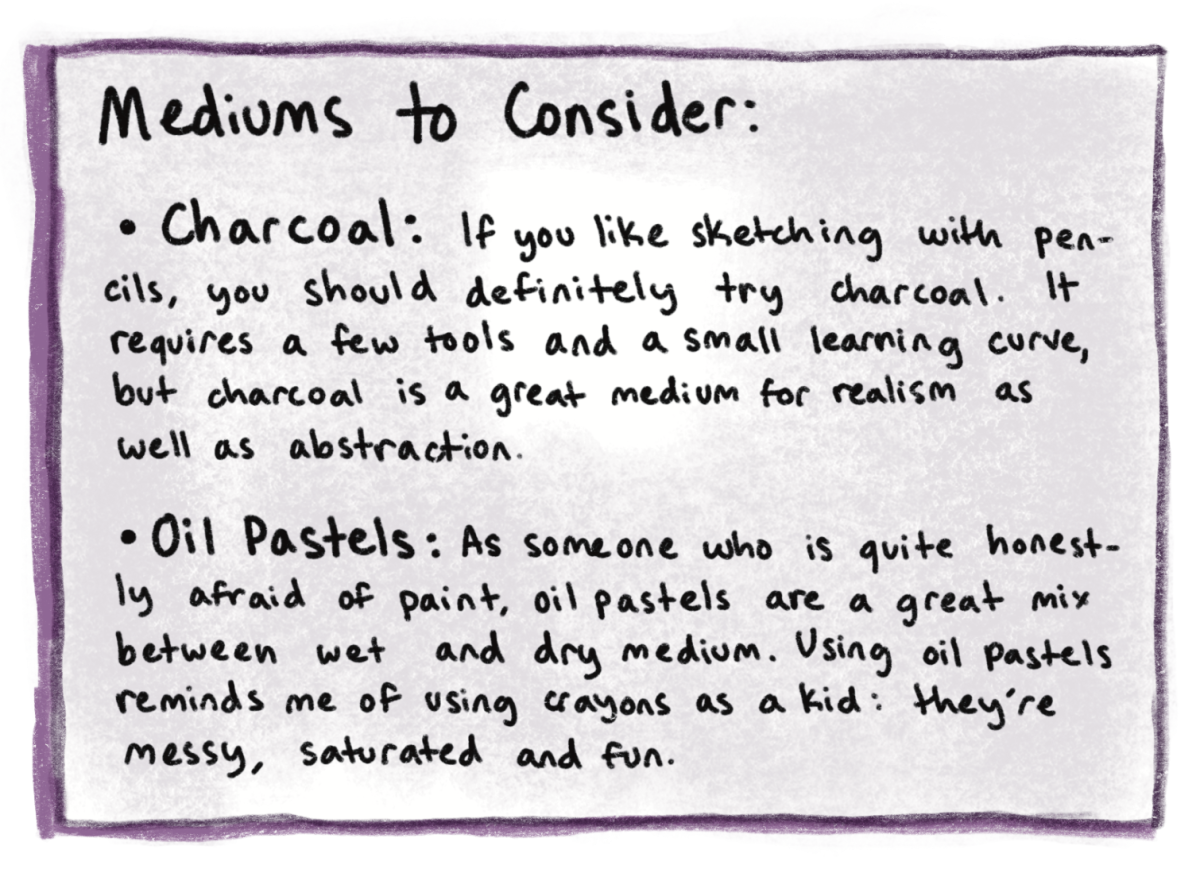Could you define burnout?
Oh, gosh. Wow. There’s quite a few definitions for that. But I think when for academics and school, it’s when the stress level it gets to a point that is so high that we almost shut down and burned out. It can be loss of interest, loss of motivation, struggle with task initiation and completion. Things like that.
Is there like a difference between stress and burnout? Are they related in any way?
I would definitely say they’re related. And I would also say they’re completely different. So stress, I would say can lead to burnout. But stress is good in moderation. It’s just, hey, we’re getting busy. There’s something going on. But when we continue to add on top of it or things are out of our control — that can lead to burnout. A little bit of stress is good, but too much stress can lead to burnout.
Are there different types of burnout?
I think different things can cause burnout. This is more of an opinion, I guess. I think there can be different things that can lead to burnout like it can be a burnout of your job or burnout of your class or out of a relationship friendship. But I think all of it can be different types of stress that lead to that similar feeling.
What trends have you seen with student burnout and how has it been different this year?
This year has been a completely different ballgame. And I think the stress levels that I’ve seen have been affecting students physically. Stress has been coming out as truancy, meaning that they’re not coming to school. I’ve seen a lot of students that are having to go to the doctor to get diagnosed because the stress is affecting their body in a negative way. Specifically this year, it’s completely different because students are getting to the point where they’re so overwhelmed that they just kind of freeze. I think it’s hard to tackle all of the responsibility and coming back from being online.
How has it been for you, navigating the recent level of burnout?
It’s been very difficult because I’m still learning how to come from private to public school. So not only am I dealing with burnout from my personal life but also trying to find that balance to support teachers. They’re feeling burnout from their students and just trying to manage all of their students. It’s very difficult because sometimes I think those students are feeling like they can’t adjust since they might be used to going 100 miles an hour, but they need to slow down a bit.
Why is this year different for teachers, specifically?
I think that last year was so hard. And this is just a speculation, from my perspective, but they had to take their curriculum and come up with an online curriculum to teach, which is really difficult. I can’t even imagine; they had to do that so quickly. And students also had to learn quickly how to learn online. They had to learn how to teach online and students had to learn how to learn online and with that there are huge discrepancies. And so what we’re seeing this year are those discrepancies. We’re seeing the residual effects of online learning. With how fast everything went down, I think that it has been extremely difficult to manage the gaps both in our learning and social lives.
How can a student identify if themselves or their classmate or friend is burned out? And if they do, what steps should they take?
That’s a good question. So I actually use this analogy with some students. Burnout’s like a car. So when your car needs something, a light will come on. The light does not indicate that your car is going to blow up right at that second. Let’s just use fuel for an example. Your car light for fuel comes on and says, okay, you’ve got 100 miles left until you’re on empty. So it’s a warning, right? And so we need to be listening to those warnings. So we need to learn our own warning signs first. Is it physical? Are we crying more? Does our stomach get upset? What are our stressors? What are our car lights?
Then we need to know, how do we tackle that? So you need a resource. Hopefully, it is is your school counselor. We are here to help talk through anything because each student is very individual. We’re not going to go and drive 49 miles in hopes that we can get to that next gas station but we need to veer off think this is where I need support from my counselor or from my friends or parents or this is where I need to talk to my teacher and spend time in seminar to mitigate that feeling.
Is there anything else that you would like to mention about burnout?
I’m really just hope that students can ask for help and don’t strive for perfection. Because perfection does not exist. My hope is that students don’t equate a 4.0 and don’t equate AP courses to being the ideal student and only way to success. Or feeling that struggling or changing is failure. I feel that a lot of students feel that way.
I would love students to know that it’s not weak to ask for help. It’s actually very strong to ask for help because strong people tend to not want to ask for help. It takes an even stronger mindset then to say, You know what, I really do need help. I would really want students to know to challenge yourself only where it’s appropriate. I don’t want them to just get a million A.P.’s on a list, but to only take those classes that they enjoy. They are not their grades and they are so much more than that and it doesn’t define them.







